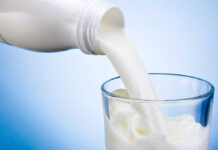
We all know the uncomfortable, full feeling that comes along with bloating. Though we may all experience bloating for different reasons. Bloating can be an allergic reaction to a certain kind of food, overeating, or an underlying health condition.
Since there are so many root causes behind bloating, below you’ll find six common causes you might be bloated.
Too Much Salt
Though our body needs sodium to function, too much sodium can cause unwelcome water retention. Sodium causes the body to hang onto liquids, causing water retention and bloating. You may need to cut back on adding additional salt to food and pay attention to labels on prepacked food, which are typically high in sodium.
Too Many Carbs
Though carbohydrates are essential to our health and energy, too many carbohydrates can cause adverse effects such as bloating. Particularly troublesome carbs are simple carbohydrates – often found in white bread, pastries, candy, and more. These carbs enter your bloodstream more quickly and can cause bloating if eaten too often.
Carbonated Drinks
The bubbles found in drinks like soda and seltzer can certainly impact your stomach. When you drink carbonated beverages, the extra air found in the carbonation can stay in your stomach and cause bloating. Plus, many of these drinks are packed with sugars, which are hard to digest, making soda even more likely to cause bloating.
Overeating
This common cause of bloating has a simple fix. Eating more than is required for your body size and metabolism can cause bloating. Your stomach is relatively small, and it stretches when food enters it. However, too much stretching can cause a bloated feeling that is difficult to resolve in the moment. The best way to avoid this is to practice better portion control.
Eating Too Quickly
The faster you eat, the more air bubbles will get caught in between bites and forced into the digestive system. These air bubbles can cause symptoms like burping or bloating. It takes about 20 minutes for your stomach to send the signals to your brain that you are full. If you eat too quickly, these signals won’t be sent in time. So, take your time eating to avoid bloating.
Dairy
Dairy products, like milk, are notorious for causing bloating and stomach upset. Many people have sensitivities to dairy without even realizing it. One of the most common symptoms of mild dairy sensitivity is bloating. If you feel bloated after eating dairy, try some dairy alternatives.
Conclusion
Since bloating can be triggered by various lifestyle choices and conditions, it’s always important to consult a doctor if you are feeling constantly bloated or have other symptoms alongside your bloating. Luckily, bloating is easy to resolve once the root cause is addressed.


















